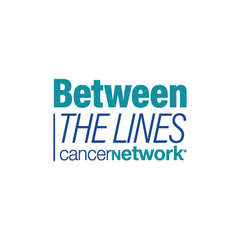
Introduction and CIRCULATE-Japan Overview
Stacey A. Cohen, MD, and Mark Lewis, MD, introduce the 2022 ASCO GI abstract, “Association of Circulating Tumor DNA Dynamics With Clinical Outcomes in the Adjuvant Setting for Patients With Colorectal Cancer From an Observational GALAXY Study in CIRCULATE-Japan.”
Episodes in this series

Transcript:
Mark Lewis, MD: Hello, and welcome to this CancerNetwork® Between the Lines program. Today’s featured trial is, “Association of Circulating Tumor DNA Dynamics With Clinical Outcomes in the Adjuvant Setting for Patients With Colorectal Cancer From an Observational GALAXY Study in CIRCULATE-Japan.” I’m Dr Mark Lewis, director of gastrointestinal oncology at Intermountain Healthcare [ Murray, Utah]. I’ll be discussing this abstract from the ASCO [American Society of Clinical Oncology] 2022 Gastrointestinal Cancers Symposium with my colleague, Dr Stacey A. Cohen from the division of oncology at the University of Washington and the Fred Hutchinson Cancer Center [Seattle]. Stacey, Welcome.
Stacey A. Cohen, MD: Thank you. Thanks for having me.
Mark Lewis, MD: I would like to start by setting the stage here and talking about the magnitude of this particular study. Circulating tumor DNA [ctDNA] is a cutting-edge tool for the detection of molecular residual disease, MRD, which has long been used in liquid malignancies, and is coming of age now in solid tumors. I think what we are so interested in in this particular setting is how it is going to refine our management of patients, not just for solid tumors, but patients with colorectal cancer who are being considered for adjuvant therapy? Will it help us more precisely estimate their risk of recurrence, and how it will help us mold their adjuvant therapy?
I will start by saying, Stacey, then I am going to turn over to you for comment, CIRCULATE-Japan is this huge adaptive platform that includes thousands of patients. It’s certainly the largest protocol of its kind, and that encompasses the GALAXY study that we would be talking about today. But GALAXY is observational, and what we’re going to talk about at the end in terms of where we are heading and future directions, is that there are 2 other studies and the master protocol. There is VEGA, which is looking at patients who postoperatively have a negative ctDNA signal. And then there is ALTAIR, which is going to take patients who have a positive postoperative ctDNA signal, or VEGA enrollees who turn positive can then cross over into ALTAIR. What VEGA is going to do is randomize the postoperative negative patients to either observation for a long period of follow-up, up to 7 years, or to a control arm of CAPOX [capecitabine/oxaliplatin] for 3 months. In ALTAIR they are going to start up front with CAPOX [capecitabine/oxaliplatin] times 4 because that’s the positive population, and then randomize to an experimental arm of trifluridine and tipiracil for 6 cycles or placebo, and then similarly follow up for 7 years.
What we might say is that GALAXY is foundational, but it’s also observational. I think some of the conclusions that we will need to reach in terms of management will come from these randomized trials. With all that said, GALAXY was using a tumor-informed assay, Signatera, and the way this works is the patients had baseline blood samples collected prior to their surgery and then at some very important time points. The one that we will talk about the most I think is the 4-week time point, but there were also 12, 24, 36, 48, 72, and 96 weeks. They just presented these results at the ASCO 2022 GI Cancers Symposium, as we will discuss.
Transcript edited for clarity.
Newsletter
Stay up to date on recent advances in the multidisciplinary approach to cancer.






































